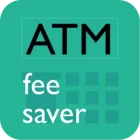Not sure if I should carry coins for public transport in Germany or if card payments are common. Advice?
If you plan to use public transport a lot, I’d recommend downloading the local city transport apps most support card payments now. But for one-off tickets at machines or kiosks, especially outside big cities, having coins is still the safest move. I always keep a stash of €1 and €2 coins just in case.
I used the DB Navigator app for all my regional trains and it worked fine with my card both Mastercard and Revolut Visa. But for U-Bahn and trams in places like Nuremberg or Dresden, I noticed the machines didn’t always accept foreign cards. Carrying at least €5-10 in coins saved me a lot of stress.
In Cologne, I tried to buy a tram ticket at a station machine and it didn’t accept my card or my €10 note. Luckily I had some coins. Another time in Leipzig, the machine looked like it took cards, but the terminal was taped off with a note saying “defekt” out of order. So yeah, having a few euros in coins really helps.
Not sure if I should carry coins for public transport in Germany or if card payments are common. Advice?
In most German cities, card payments are becoming more common, but you still can’t rely on them everywhere for public transport. In Berlin and Hamburg, I used the BVG and HVV apps and paid with my card directly super easy and no need for coins. But in smaller towns or at older ticket machines, you’ll still see signs that say "Nur Bargeld" cash only and sometimes they won’t even take bills, just coins.


